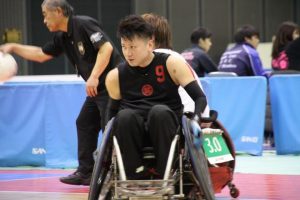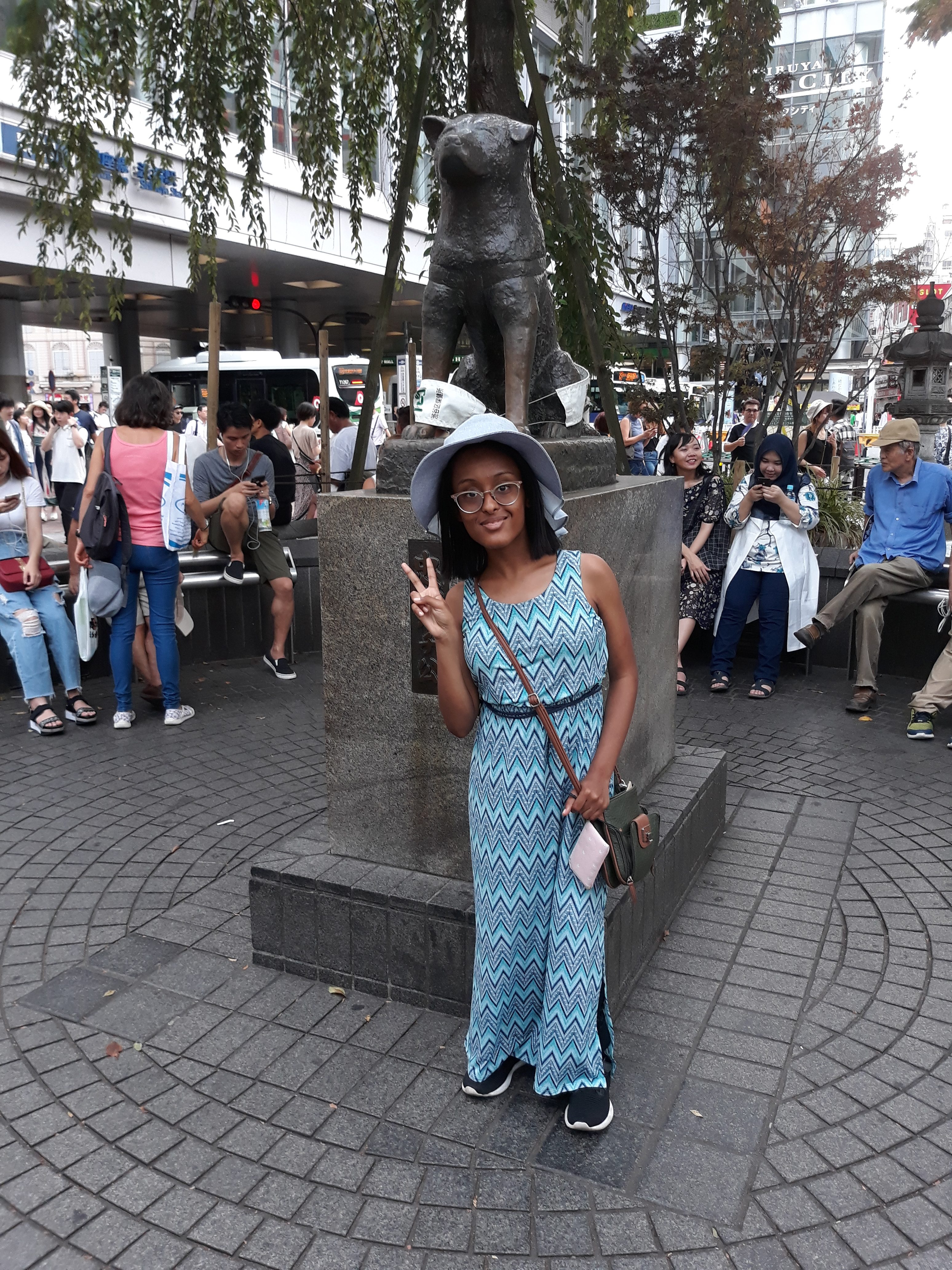This article originally featured in the April 2020 issue of Connect.
Huda Samakaab (Chiba)
Growing Up With a Disability
What sort of person do you picture when you hear the word “disability?” What sort of lifestyle is this person living? Even in the face of our preconceived notions, living with a disability covers a wide range of conditions and experiences. Despite this fact, it can be difficult to find perspectives from people with disabilities in regards to major life events, even in the case of the well-chronicled excitement and anxiety of moving abroad. I ran into this issue prior to relocating to Japan, agonizing over whether I would be able to perform well as a JET and not finding much information from participants with physical disabilities that were similar to my own.

I have had spastic diplegic cerebral palsy since birth, which means the muscles in my legs are tighter than average and prone to spasms. Though many with cerebral palsy are permanently wheelchair-bound or unable to communicate without assistive devices, I am able to walk and live independently. However, I walk slowly, often lose my balance, and usually use leg braces.
Growing up with a physical disability in the United States was a succession of admittedly daunting events that I perceived as normal: a wheelchair followed by crutches, crutches followed by walkers, specialized 504 plans for educational accommodations, a few surgeries, and re-learning how to walk a couple times. From a young age, I was encouraged to seek out resources for assistance and establish routines that worked for me. When I finally moved to Japan, I realized that I would have to start from scratch to find new routines and figure out how to best advocate for myself.
Everyday Life While on JET
As quaint and convenient as my Chiba neighborhood is, getting around can be tough at times. More so than in the United States, I’ve found that the sidewalks in my city can often be uneven, and my feet have occasionally come close to getting stuck in sidewalk drainage holes.
My work days start and end with a staring match between myself and the small, railing-less staircase that leads up to my elementary school. My thought process is usually something like this: Will I go upstairs starting with my left foot today, or with my right? Should I wobble my way downstairs and hope that I don’t fall, or should I reach down and grab that big planter for support?
What if someone sees me grab the planter and thinks that I’m a weird flower thief? At a certain point, it’s best to ignore the flurry of questions in your head and charge forward, provided that you don’t make a mess of things. It’s a lot easier to go down a flight of stairs if you don’t overthink it.
Overcoming Obstacles
As you can likely tell, my physical struggles exist alongside mental and emotional hurdles that I have encountered upon ending my sedentary college lifestyle and beginning work as an ALT. Faced with the many physical minutiae of teaching—repeatedly climbing staircases, flipping flashcards, passing out worksheets, and handing out stickers—I often feel deeply ashamed at how clumsily I complete these tasks. In a way, it is as if my body is a marionette that I am controlling from the inside-out, and I can only watch in embarrassment as my knees lock, or my fingers shake or grow stiff and wooden.
Despite the fact that I thought I completely understood my physical limits after over 20 years of life, the demanding role of classroom assistant has taught me that my body was merely used to a certain set of circumstances. Rather than ruminating on whether I’m an inconvenience to my JTEs and students, I’ve chosen to work on focusing on what I can do well and effectively communicating my needs.
 The Current Situation in Japan
The Current Situation in Japan
From a political perspective, disabled adult wards in Japan only gained the right to vote in 2013 after an intellectually-disabled woman in Ibaraki Prefecture successfully sued the Japanese government, arguing that the Public Office Elections Law that prevented her from voting was unconstitutional. This law was originally put into effect due to concerns that disabled individuals lacked the “. . . intellectual abilities to understand candidates’ positions.”
Regardless of one’s intellectual ability, depriving an individual of their right to vote is a denial of their personhood. At its worst, ableist prejudice in Japan has led to acts of senseless violence. This is embodied by the 2016 massacre in Sagamihara, Kanagawa, wherein 19 disabled individuals in a living facility were stabbed to death by an employee who explicitly stated that “. . . his purpose was to eliminate disabled people from the world.” It’s soul-crushing to think that someone could see another human being unworthy of life, a viewpoint that stems from ignorance of the fact that those with disabilities can contribute to society, love others, and pursue their dreams, even if they require assistance from others to do so.
Despite these tragic events within the history of Japan’s disabled population, strides towards a more inclusive future have been made and continue to this day. In 2006, Japan passed the Barrier-Free Act, legislation that would improve accessibility nationwide for the disabled and elderly by providing more ramps, elevators, tactile paving, and accessible toilets in public spaces and transportation hubs.
Strides Towards a Brighter Future
Japan is also a regularly participating country in the Paralympic Games, providing its disabled athletes with a spotlight to showcase their strengths and amazing achievements. My school recently hosted Paralympic wheelchair rugby athlete Imai Tomoaki as a speaker. It was immensely heartwarming to see how attentively a gymnasium full of fourth-graders listened to him recount winning a bronze medal at the 2016 Rio Olympics.
I merely observed in the distance, but seeing the glee on their faces as they watched a wheelchair rugby demonstration made me feel much more welcome in my school. I’m sure that my fourth-grade self, still wobbly and clearly able to remember her own time in a wheelchair, would have been overjoyed.
Huda Samakaab is currently a first-year ALT in Chiba. She has a BA in English and writes poetry whenever inspiration strikes. Huda’s also a huge bookworm, a fan of anime and gaming culture, and a frequent lurker of neighborhood taiyaki stands. Follow her on Twitter at @hudagoesnuts for more musings.



![CONNECT ART ISSUE 2024 SUBMISSIONS [CLOSED]](http://connect.ajet.net/wp-content/uploads/2024/04/ARTISSUE-INSTA-600x500.png)





